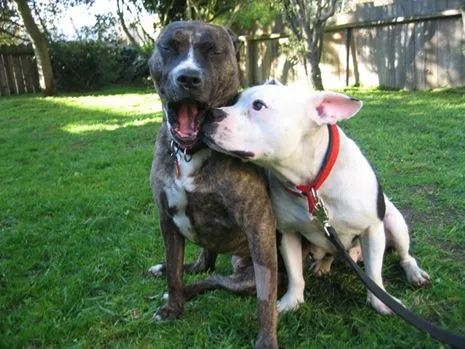The story of former NFL quarterback Michael Vick’s return to professional football following his prison sentence for federal dogfighting charges was, for a time, a highly debated topic. While much of the public discourse focused on his personal atonement and the controversies surrounding his re-entry into the league, an equally compelling and far more heartwarming narrative emerged from the shadows of his infamous Bad Newz Kennels. This is the story illuminated by The Lost Dogs Book, Jim Gorant’s profoundly moving account, which shifts the spotlight from human failings to the incredible resilience and capacity for redemption found within the very dogs Vick abused. For those fascinated by compelling dog books that delve into the profound bond between humans and canines, Gorant’s work offers a unique and essential perspective.
The Horrors of Bad Newz Kennels and a Glimmer of Hope
The conditions at Vick’s Bad Newz Kennels in Virginia were a stark reminder of the brutality inherent in organized dogfighting. The forty-nine pit bulls rescued from that operation faced a grim prognosis; fighting dogs are often so severely damaged, both physically and psychologically, that euthanasia is frequently considered the most compassionate option. Initially, even respected animal-rights organizations like the Humane Society and PETA advised the government that seizing the dogs and putting them down was the best course of action. They believed these animals were beyond rehabilitation, too broken to ever lead normal lives.
However, as meticulously documented in the lost dogs book, a dedicated group of government officials, animal behaviorists, and volunteers dared to challenge this grim assessment. They chose a different path, evaluating each dog individually on its own merits rather than condemning an entire group based on their past trauma. This decision ultimately led to the rescue and rehabilitation of forty-two of these animals, marking the beginning of their extraordinary journey toward a second chance. Jim Gorant’s narrative expertly captures the tension and hope of these early days, illustrating the pivotal moment when compassion triumphed over despair.
Beyond the Stereotype: Understanding Pit Bulls Through Gorant’s Lens
One of the most significant contributions of the lost dogs book is its powerful defense of the pit bull breed. Often unfairly maligned as inherently “uncontrollable and bloodthirsty,” these dogs carry a heavy burden of negative stereotypes. Gorant, through extensive research and intimate stories of the Vick dogs, systematically dismantles these misconceptions. He presents compelling evidence that, “free of negative influences, they’re not much different from any other breed.” This assertion is crucial for understanding why many of these dogs, despite their horrific pasts, were able to recover.
The conditions endured at Bad Newz Kennels left many of the dogs with deep-seated fears—fear of other dogs, fear of people. Yet, Gorant highlights that aggression was rarely their defining characteristic. Instead, they exhibited traits common to most dogs: a deep-seated desire to please those around them. Their journey, as told in the lost dogs book, is a testament to the fact that breed characteristics are often overshadowed by individual temperament and the profound impact of environment and human interaction. This narrative stands alongside other memorable canine tales, even books similar to A Dog’s Purpose in its emotional depth.
 A smiling pit bull named Jonny Justice, rescued from Michael Vick's kennels, now works as a therapy dog, embodying the redemption story from The Lost Dogs book.
A smiling pit bull named Jonny Justice, rescued from Michael Vick's kennels, now works as a therapy dog, embodying the redemption story from The Lost Dogs book.
Journeys of Healing: The Dogs’ Remarkable Transformation
The path to recovery for the Vick dogs was neither swift nor easy, but it was undeniably remarkable. While many required slow, patient sanctuary care, others thrived in new homes, transforming into beloved family pets and even caring volunteer animals. The lost dogs book celebrates these individual success stories, offering tangible proof of their capacity for healing and happiness.
Jonny Justice, with his distinctive “black eye and a greasepaint mustache,” is one such shining example. Rescued from the kennels, he became an adored pet and now serves as a therapy dog in the Paws for Tales reading program in San Mateo, California. His story, deeply explored by Gorant, is a beacon of hope. Grace, another survivor, enjoys playing fetch and tug-of-war in California, demonstrating her joyful integration into a loving home, despite some initial wariness. Their transformations underscore the profound impact of love, patience, and a safe environment. This narrative of profound loyalty and unlikely survival echoes other legendary stories of dogs, reminding us of their deep capacity for love.
 Close-up of Jonny Justice, one of Michael Vick's rescued pit bulls, showing his unique markings, as described in The Lost Dogs book by Jim Gorant.
Close-up of Jonny Justice, one of Michael Vick's rescued pit bulls, showing his unique markings, as described in The Lost Dogs book by Jim Gorant.
These stories of individual dogs, meticulously researched and sensitively portrayed in the lost dogs book, provide invaluable insights for anyone interested in dog behavior, rehabilitation, and the profound impact of human kindness. The initial advice to euthanize was a somber thought, a reflection of the difficult decisions animal welfare organizations sometimes face when confronted with such sad dog book scenarios. Yet, the choice to give these dogs a chance ultimately yielded a testament to the resilience of the canine spirit and truly a good dog story.
 Grace, another pit bull from the Bad Newz Kennels, playing fetch in a field, illustrating the incredible recovery journey highlighted in The Lost Dogs book.
Grace, another pit bull from the Bad Newz Kennels, playing fetch in a field, illustrating the incredible recovery journey highlighted in The Lost Dogs book.
A Powerful Message for Dog Owners and Advocates
Jim Gorant’s the lost dogs book is far more than just a recount of a sensational news story. It’s a deeply resonant exploration of second chances, the power of redemption, and the profound capacity for healing in abused animals. It challenges preconceptions about specific breeds and highlights the critical role that dedicated individuals and organizations play in animal welfare. For every dog owner and animal advocate, this book offers powerful lessons in empathy, patience, and the unwavering belief in an animal’s right to a life free from cruelty. It serves as a vital reminder that even the most traumatized creatures can find peace and joy with the right support.
Conclusion
“The Lost Dogs: Michael Vick’s Dogs and Their Tale of Rescue and Redemption” by Jim Gorant is an essential read for anyone interested in animal welfare, dog behavior, and inspiring stories of survival. The lost dogs book not only chronicles the fate of the pit bulls rescued from Michael Vick’s kennels but also provides a moving testament to their resilience and the transformative power of compassion. It’s a compelling narrative that reaffirms our responsibility to protect and advocate for all animals, ensuring they too receive the second chances they deserve. We highly recommend adding this impactful book to your reading list.
References
- Gorant, Jim. The Lost Dogs: Michael Vick’s Dogs and Their Tale of Rescue and Redemption. Gotham Books, 2010.
- New Yorker. “The Lost Dogs.” The New Yorker, September 14, 2010.
- PETA. “Vick’s Dogs: What Happened to Them?” PETA.org.
